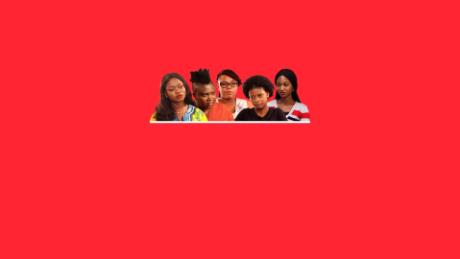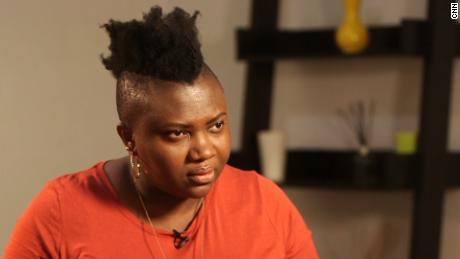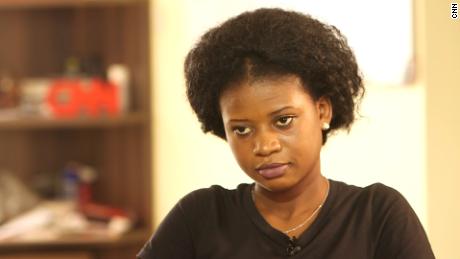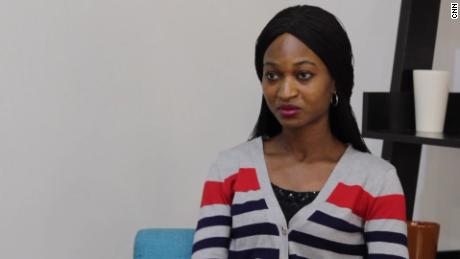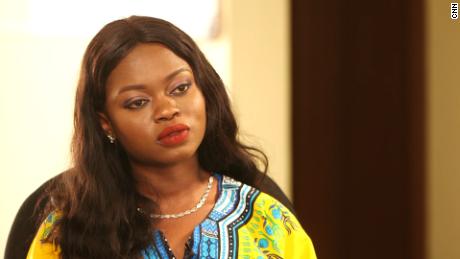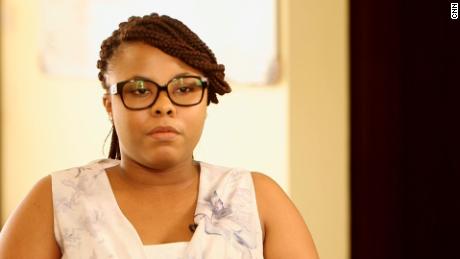The #MeToo stories you haven't heard: Meet the women speaking out in Nigeria
Updated 0953 GMT (1753 HKT) March 3, 2018
Editor's Note: CNN is committed to covering gender inequality wherever it occurs in the world. This story is part of As Equals, a year-long series.
Lagos, Nigeria ŌĆö Brenda Uphopho was walking up the stairs in her office when she suddenly felt someone's hand reach underneath her skirt. It was her boss.
"I screamed, and he was shocked at my scream," Uphopho, a festival producer from Lagos, told CNN. "And I was shocked that he was shocked."
Speaking out about sexual assault and harassment is widely considered taboo in Nigeria, where one in four girls experience sexual violence before the age of 18. Of those who experienced sexual violence in childhood, only 38% told someone about it -- and as few as 5% sought help, according to a national survey carried out in 2014.
Many victims suffer in silence, but, in the wake of the global #MeToo movement, Nigerian women are beginning to share their stories -- hopeful that it will break the cycle of stigma.
Uphopho is one of five Nigerian women who have told CNN about their experiences of rape, sexual abuse and harassment in recent weeks and months. Many of the women were speaking out for the first time.
Brenda Uphopho
Uphopho told CNN she has been assaulted three times by three different men.
The first was when she was just 5 years old, and a man who worked for her family forced her to touch him.
Uphopho said she didn't understand how serious the situation was at that age, so she kept quiet.
When it happened again she was 18, and old enough to know she had been violated.
"During a party, I found myself alone with a stranger who wanted to force me to have sex with him. He beat me up when I refused and sexually assaulted me," she told CNN. "I was too ashamed to tell anyone about it."
"I just felt if I was going to tell anybody ... they would ask me ... 'What did you wear? What were you doing there? How did you end up alone with this person?'" she said, adding that she came to believe it was her fault.
"I could be walking on the street and I would get my butt slapped by a bike rider. My coworkers would make unsolicited sexual comments to me and I wouldn't think it was out of place."
Uphoho and her husband have co-produced a play called "Shattered," which seeks to encourage victims of sexual violence to speak up about their experiences. She decided to share her story to break the "culture of silence" around sexual abuse.
Eurel Nwafor
Eurel Nwafor, 22, told CNN she was raped in August 2017 after some opposition union members stormed her former place of work.
"There was a lot of chaos outside the office," said Nwafor, who was working as a personal assistant at a market in Lagos at the time. "On opening the door to see what was happening, I received a slap from a man and before I could recover, he dragged me outside."
Nwafor said that the same man ripped her clothes off and forced himself on her.
"He didn't listen, though I begged him to stop," she told CNN.
Nwafor has been fighting to bring charges against the man she says raped her, despite her family's disapproval.
"My mom wants me to leave everything in God's hands, likewise ... other family members, but I refuse to suffer in silence."
She took to Instagram, sharing a video pleading for help. It went viral and caught the attention of support group Stand To End Rape, which offered her counseling and legal advice.
"I cannot wake up every morning, knowing that the person that did this to me is out there going about his daily activities like nothing happened," Nwafor said.
Chichi Ogbonnaya
Behind her warm smile, Chichi Ogbonnaya hides the scars of being raped at just 10 years old.
"This man was respected in our church and I called him 'uncle,'" she said.
Ogbonnaya was sent to live with the man by her mother, who couldn't afford to take care of her.
The abuse started soon afterwards.
"He made me lie on top of him while his wife was away," Ogbonnaya said, speaking about the experience for the first time. "He tried to penetrate me but when he could not, he went to get something that looked like a lubricant."
"He told me to stay calm and be quiet. I didn't know what was happening," Ogbonnaya said.
Ogbonnaya told CNN she remembers him handing her "the blood-soaked sheet to wash before his wife returned."
The abuse continued for five years -- until she was 15. During that time she was forced to have an abortion, but the procedure was botched and left her hemorrhaging alone in her bedroom.
"Even after I left the house, the act still continued and I just felt it was too late. I was too exposed to a whole lot of things ... I didn't have that sort of relationship with my mum to start telling her this happened to me."
Ogbonnaya now works as a program manager for Women at Risk International Foundation, a rape crisis center.
Oluwaseun Ayodeji Osowobi
In 2010, Oluwaseun Ayodeji Osowobi was working as a volunteer in a local election when she says she was asked to register underage voters. She refused.
Afterward, one of the candidates came to meet her, Osowobi, now 27, told CNN. "He said 'You are a young girl, after service, what is next for you? You want to get a job? I will give you money, get you a car, give you employment and make your life better.'"
Osowobi turned down the offer, sparking widespread hostility towards her in the community.
"Nobody was kind except this young man who came to my polling center to register," Osowobi said. He offered her a ride home, saying it wasn't safe for her to walk by herself at night.
"He made advances at me. When I declined, his countenance changed and I knew I was in danger," Osowobi said. "I struggled to get out of the car but he chased after me and dragged me on the floor with my braids. He assaulted me while I pleaded with him that I was a virgin. I felt worthless after," she said.
Although the experience was traumatic, Osowobi said she was able to move on because of the support and counseling she got from her parents.
"I told my parents and apologized because I felt I had disappointed them. My mother said to me: 'Your worth is not in your vagina; your worth lies in your capacity as a human being to think, work and impact your generation,'" she said.
Osowobi said the experience inspired her to start Stand to End Rape -- one of only two rape centers in Lagos.
Omodasola Omibeku
Omodasola Omibeku told CNN she first experienced abuse at the hands of a distant relative at around 6 years old.
"Anytime we were alone, he brought out his penis and asked if I knew what it was and wanted to touch it? He would put it my hand or mouth," Omibeku told CNN.
The man lived in Omibeku's home, which she said was full of "aunties and uncles, some not even blood relatives."
"I was in a lot of pain when he raped me some months after. I still feel the pain any time I talk about it. It was like trying to force a huge spiky rock into a tiny hole."
Omibeku said she was attacked again in university, while she was walking home to her hostel after lectures.
"I thought I was being robbed, so I offered him my bag and phone but he didn't want any of that.
"He pushed me to the ground, grabbed my right knee and raped me."
After the ordeal she was too ashamed to tell anyone.
Both experiences have distorted her perceptions of sex. "How am I supposed to enjoy sex without having to think about how someone forcefully raped me? It gives me the idea that that is what sex is supposed to be. It messed up my first knowledge of sex," she said.
Omibeku told CNN that she only began to heal after she met other victims of sexual abuse at Osowobi's Stand to End Rape center.
"Up until then, I thought I was the only person that had been raped in the world. I thought I was the only person carrying this pain," Omibeku said.
Now she supports other victims as a volunteer at the rape crisis center. "I want my story and healing process to help others out there and to let them know they are not alone," she said.
